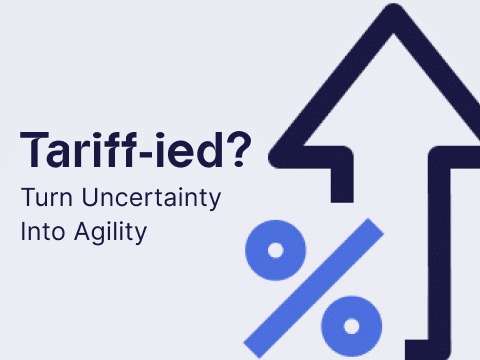
A partnership between a startup and corporate is a huge investment for both partners. Grundfos looked at 35 companies in Augury’s space and spent months vetting a shortlist. We worked together for two years before signing a strategic partnership. Based on our experience, here are the questions you should ask in order to pick the right startup or corporate partner.
We all rely on water. In the face of climate change, moving, managing and treating water is an increasingly urgent global challenge. Grundfos is the world’s biggest pump manufacturer, and has made UN sustainable development goal six, ensuring access to water and sanitation for all, one of the pillars of its business. A few years ago, the company concluded that to achieve this goal while combating climate change, global water infrastructure must be digitized. Business as usual was no longer an option.
By 2025, Grundfos will transform itself from a product company into a digital water service and solutions company, a digital transformation that will dramatically change its products, business model and sales organization. To achieve this, Grundfos must monitor and diagnose the condition of millions of pumps and build a completely new set of digital water services and solutions for cities and industry, all while transforming an organization employing 19,000 people. That’s a massive challenge. Grundfos realised that it couldn’t do it alone. Augury, a scaleup of 120 people, is one of its partners.
Augury is a leader in the emerging category of Digital Machine Health; using IOT and AI to predict and improve the reliability and performance of high-value machines like pumps. Augury will help Grundfos to develop and deliver digital water services based on Machine Health insights. We will make, market, sell and scale new services together.
To create such a successful partnership, both parties have to ask themselves three core questions:
1) Do we have a shared vision?
Does your potential partner share your vision of the future? Do you have product or feature overlaps? Can you use a common rationale for decision making?
Both partners must share a common vision of the future. If one partner wants to consolidate the market and the other wants to democratize it, the partnership is never going to work. Some overlap in products or features between the startup and corporate partner (up to about 30 percent) is always a good indication that you have a similar vision and can use a common rationale for decision making.
From the early days of the company, Augury predicted that equipment-as-a-service business models would change the industrial market. Instead of buying industrial machines and then having to maintain and fix those machines, industrial customers would simply buy a subscription service for machines that work. This fits perfectly with Grundfos’s goal to implement pumping-as-a-service and water-as-a-service business models.
Many city households already get water-as-a-service, where they only pay for the water they actually use. Households never have to worry about maintaining the pumps that move water in and out of their kitchens and bathrooms, but water system customers like cities and manufacturers still have to manage their own pumps and other water infrastructure. They need water-as-a-service too, and Grundfos wants to provide it.
2) How much trust and transparency do we need?
Do both companies have a similar attitude to transparency? Can enough trust be established between the partners that they can make decisions together?
Both partners must have similar attitudes to transparency and trust. In Apple, segregation of information is normal. Only a few people at the company may know about the development of a new product. In the Linux foundation, everyone knows everything. Those cultures cannot work together because decisions are made using totally different information systems.
3) Do we have complementary skills?
Does each partner value the skill set and point of view of the other? Is each partner willing to learn from the other? Does the corporate see the startup partner as more than just a vendor?
Grundfos has massive market share and knows how to scale, but has never run a services business. It’s always tempting for a corporate to scale prematurely since corporate processes are designed to scale, not to get to product/market fit. Augury has spent eight years growing a successful Machine Health service business and has the startup advantage of speed. Grundfos can leverage Augury’s existing market knowledge and validation to accelerate the development and adoption of Grundfos’s new digital services, while derisking scaling.
A product company has a single point of contact with a customer. A digital services company has a continuous relationship with a customer and must provide such a high level of service that customers want to renew their contracts. Augury has built a stellar customer success team. Grundfos has never had a customer success team. Augury will fill that gap for Grundfos’s new digital services while helping Grundfos to gradually build its own customer success capabilities.
Any partnership between a startup and corporate is ultimately a leap of faith, especially for the startup. Grundfos is placing a big bet. Augury is betting the whole company. But we believe in that bet because we believe in our partner. Asking the right questions will help you to pick the right partner too.
Want to learn more? Just reach out and contact us!




